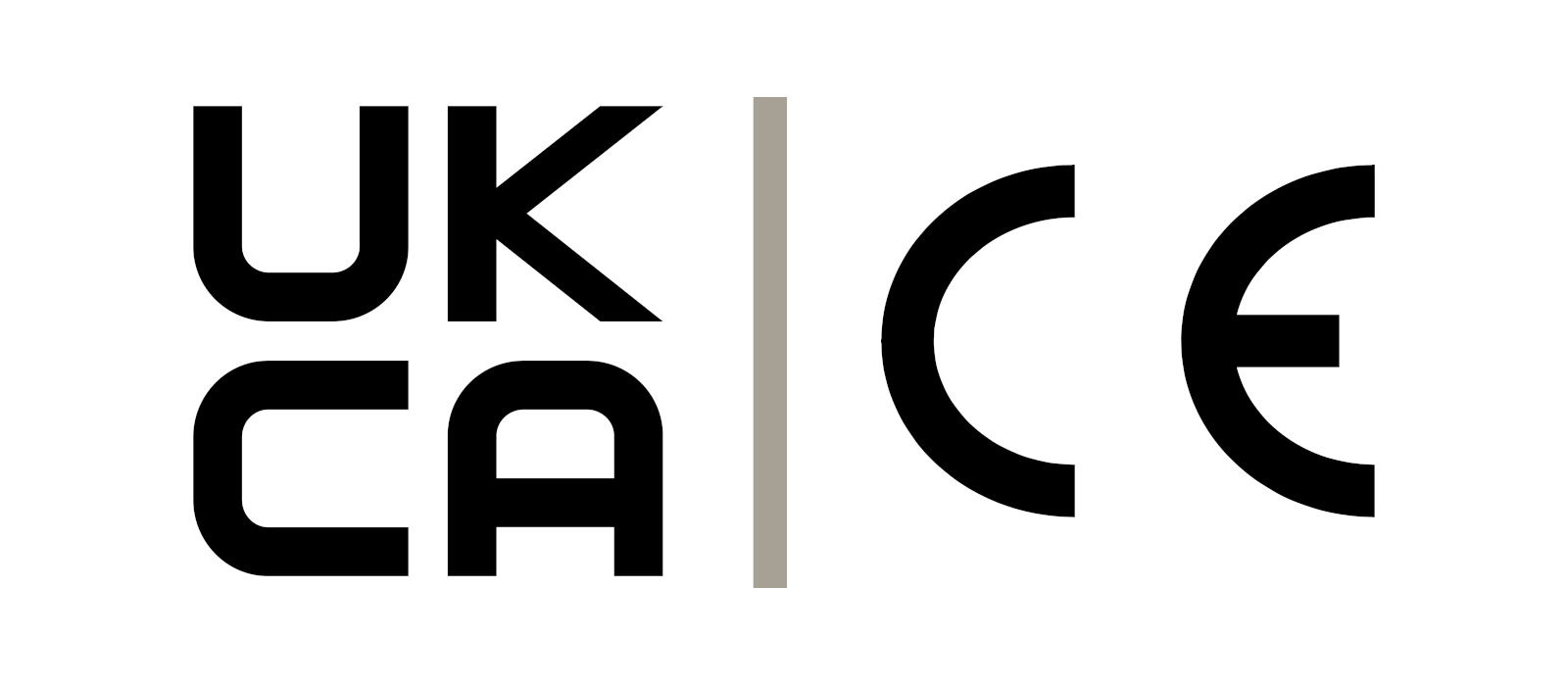
CE/CA Markings Info
What it is: The UK Conformity Assessed (UKCA) mark is a mandatory mark on certain products, for example mobile phones, to indicate that they conform to Great Britain legislation. The marking allows the UK to have control over its goods regulations and maintain our high product standards.
Reducing re-testing costs:
Any conformity assessment activities undertaken by EU bodies before the end of 2022 will be considered as the basis for UKCA marking next year. Legislation on this will be brought forward before the end of the year and will enable manufacturers to apply the UKCA mark on these products without the need for re-testing.
Removing the need to re-test existing imported stock:
This will allow CE marked products that are manufactured and imported into the UK by the end of 2022 to be sold, without the need to meet UKCA requirements. This will remove the current need for retesting and recertification for products that are imported whilst the UK recognised CE requirements.
Continuing to accept spare parts onto the GB market:
The UK will continue to accept spares onto the GB market which comply with the same requirements that were in place at the time the original products or systems they were being used to repair, replace or maintain were placed on the market. This will help to address concerns about the availability of spare parts and ensure businesses and organisations avoid disruption to their operations.
Extending labelling measures:
To make it cheaper and logistically easier for businesses to continue to supply goods to Great Britain, legislation will be brought forward to extend current labelling easements to allow important information and other UKCAmarkings to be added to products using a sticky label or an accompanying document.
Recognising historic testing on some construction products:
Manufacturers of construction products under AVCP system 3 – such as radiators, sealants and tile adhesives – whose products are tested by an EU notified body before 1 January 2023 will be able to obtain a UKCA mark without having to retest through a UK-approved body.
Literature:
- https://www.gov.uk/government/news/government-to-make-it-simpler-for-businesses-to-apply-new-product-safety-markings?utm_source=miragenews&utm_medium=miragenews&utm_campaign=news
- https://www.gov.uk/guidance/using-the-ukca-marking#full-publication-update-history
- https://www.gov.uk/guidance/ukca-marking-roles-and-responsibilities#manufacturers
- https://www.gov.uk/guidance/uk-conformity-assessment#full-publication-update-history
What does this mean for CE marking?
- Government to continue to recognise the CE product marking in Great Britain for a further 2 years, allowing business to use either UKCA or CE markings
- move will cut costs for businesses and remove potential disruption
- future product marking plans to be reviewed to minimise costs and burdens for business in the longer term
The UKCA marking covers most goods which previously required the CEmarking, known as ‘new approach’ goods, in addition to aerosols that previously required the ‘reverse epsilon’ marking.
Whilst the UKCA marking can be used now this extension means businesses can choose to use the CE marking until 31 December 2024.
This sits alongside measures to reduce the costs of retesting products and labelling.
To reduce labelling costs, we will allow businesses to affix the UKCA marking and include importer information for products from EEA countries on an accompanying document or label until 31 December 2027.
We will also allow conformity assessment activities for CE marking undertaken by 31 December 2024 to be used by manufacturers as the basis for the UKCA marking, until 31 December 2027.
To extend the deadline, the government has today laid secondary legislation before Parliament which, subject to parliamentary approval, will implement these measures.
Businesses have been able to use the UKCA mark since 1 January 2021 to demonstrate their conformity with product standards in England, Scotland and Wales.
UKCA marking: roles and responsibilities
This guidance explains some of the obligations and responsibilities of the economic operators looking to comply with the new UKCA marking in Great Britain (GB). Great Britain is England, Wales and Scotland.
Economic operators under the relevant legislation are:
- manufacturers
- importers
- authorised representatives
- Distributors
Specific responsibilities for manufacturers
For certain product regulations, manufacturers have specific obligations. These include regulations for:
This list is indicative and not exhaustive. Manufacturers should check the relevant product specific legislation applicable to their product to understand their full responsibilities.
A link to the website is below.
Here, you will be able to find organisations who are certified to provide the relevant testing arrangements for your products.
https://www.ukas.com/find-an-organisation

